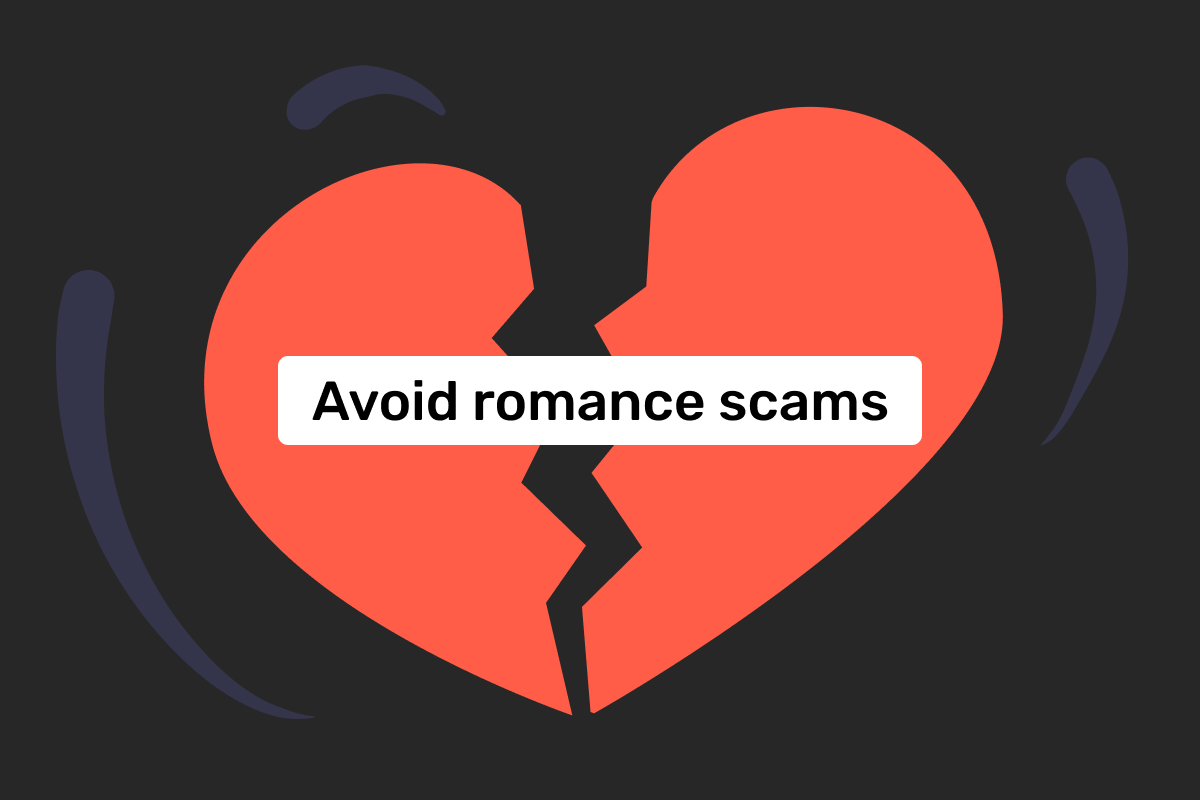Genome Blog / articles / Love is scammed: what is romance fraud
Apr. 5, 2024
Have you recently received any random messages professing eternal love for you? Well, don’t be in a rush to respond – this is likely a primitive romance scheme. But sometimes, this type of fraud is not so obvious.
Let Genome help you figure it out. In this article, we uncover the meaning behind romance scams and explain how these can be avoided.
What is a romance scam?
Like in many other fraudulent cases, the criminal creates a fake identity and starts surfing dating sites or social media. There, the fraudster starts corresponding with people, trying to quickly establish a “romantic relationship” with the person they target.
However, there is really a thin line between romance and traditional finance scams because both have one goal — to steal somebody’s money or data.
Scammers are actively engaged in the dating scene nowadays due to the many possibilities on the internet. They operate through all popular social media and dating apps, trying to pick up potential victims.
For example, according to data from Lloyds Bank, such fraud incidents increased by 22% last year compared to 2022. On average, people lost almost 7000 British pounds per accident in 2023.
By the way, according to the research, men are slightly more likely to fall victim to romance scams (52%). However, women usually tend to spend more on their fake admirers, losing over £9083 on average compared to men (£5145).
Examples of romance fraud
Romance scams come in various forms. Usually, the “love seekers” create scheme profiles on social media and dating sites using fake or stolen photos and information. After that, they actively try to contact someone. Such criminals are extremely patient and will spend a lot of time building a trusting relationship with potential victims.
Their key similarity is that you will never see them in person. Once scammers are close to being revealed or manage to trick a person into sending funds, they will likely cope out of the conversation, citing “bad internet connection,” “busy work day,” “family emergency,” etc.
A good case for showing a real example will be this ex-romance scammer who hid under the guise of a handsome American soldier. Since turning his back on a life of crime, he leaked a 40-page step-by-step guide about the most effective love scammers schemes.
According to British police, people who use “widowed, divorced or lonely” in their online profiles are often seen by scammers as the primary target.
Here are a couple of examples of the most common scenarios that romance scammers use:
- An emergency situation: a “sudden” medical problem or legal trouble, but the scammer doesn’t have cash on hand, and they will “certainly return the money” later.
- Money to meet: A fraudster asks for financial assistance to visit the person they are chatting with. In most cases, once the funds are sent, the scammer disappears immediately after.
- Investment opportunities: In rare cases, some scammers pose as wealthy individuals; they even can pay for some stuff for victims for trust building, but in the end, they offer their “fiancé” a unique opportunity to invest that never, of course, will come true.
- Data compromised: the scammer manipulates a person into revealing their login and password to get access to the victim’s app profile, making it easier to crack into their banking apps.
Impact of romance scams on business and how to deal with it
Businesses are run by people, and people, unfortunately, can make mistakes. Companies may be directly affected by romance fraud either through their workers or clients.
Consider this real-life scenario: A local US company was recently hit by a romance scam, resulting in a staggering loss of nearly $4 million. The business owner only became aware of the fraud when they noticed inconsistencies in the financial statements, including large transfers.
The employee had been having marital problems and began an online relationship with a man who later claimed he owed $7 million for work he performed in Dubai. The criminal convinced her that he needed “just to borrow” the US currency to get his money back.
The FCC estimated that over $1,3 billion was lost to romance scams in 2022 alone, with 70 000 Americans reporting this type of fraud.
To better protect your company from such cases, you need to be serious about your internal risk management initiatives and constantly educate your workers on cybersecurity and recent fraud cases.
It is also crucial to keep your equipment constantly updated with anti-virus software and use multi-factor authentication for all corporate accounts to prevent account takeovers.
How to prevent a romance scheme
Unfortunately, the consequences of romance scams extend far beyond financial losses. People fall into depression and become more suspicious of others, losing trust in people. Not to mention that fraudsters usually target people in vulnerable states, which makes it even more devastating.
However, romance fraud is also likely to be one of the most underreported types of fraud because of the shame and embarrassment people experience when they realize what has happened.
Overall, the impact is huge and affects every aspect of their lives. It is essential for people to get support and go through recovery.
Additionally, raising awareness about the tactics used in romance scams and providing education on recognizing and preventing them will be handy.
Here’s the most essential tips on how to protect yourself:
Be cautious about sharing personal information online. Of course, it doesn’t mean you must stop communicating with people online altogether. However, do not share personal details, passwords, or other things that can be used to access your personal accounts.
Do a quick check. Scammers can use different profile pictures and lie about who they really are, especially online. Try to Google the person’s name and photo.
Don’t click the links. If you don’t know the person well enough, you better not open any links or download any files they send you. Those may contain malware to steal your data and passwords.
Keep your passwords unique. Yes, it is indeed a very common advice, but it’s only because it works! You need to have a separate, strong password for each of your accounts. If you have two-factor authentication for your accounts – enable it as well.





